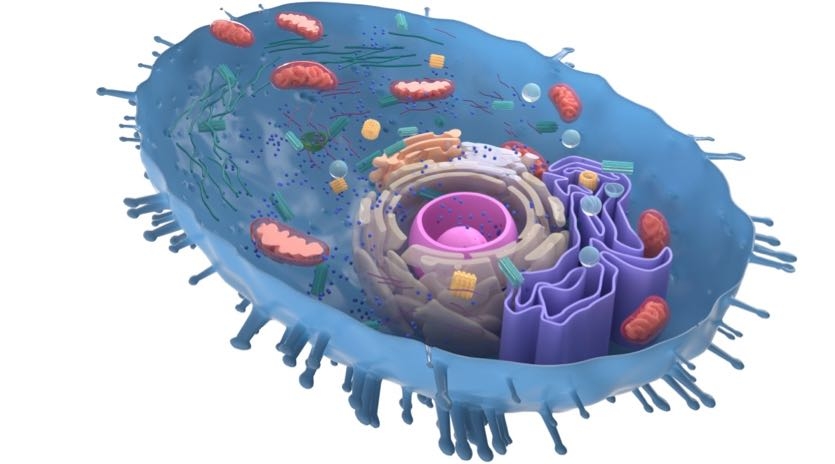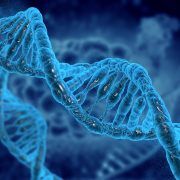Human Cell Cleanup: Cellular Damage Control with Autophagy and Mitophagy

Your body can’t wait for a specific cleaning day to roll around. It’s constantly repairing, maintaining, and recycling. That happens on a large scale with life-essential proteins everywhere in your body. And that continual cycle happens in each human cell, because they all do their own form of cellular damage control, too. Two of the most important cleanup processes are autophagy and mitophagy.So, let’s figure out why these cleaning processes are important. Then talk about how your cells deal with recycling, renewing, and dealing with cell damage and cellular cleanup.
Why Cell Cleanup is Good for Your Overall Health
So many proteins are essential to your life. But amongst the diversity, there is something that’s common. They all must be broken down after fulfilling their assigned tasks. Whether the protein is a liver enzyme, cellular structural support, or a protein protecting your body as part of the immune system, they all eventually become old and have to go.
This normal cellular-quality-control process helps maintain your overall physical wellness. It helps keep you cranking through your daily tasks, enjoying adventures, and generally living your best life.
But if the body’s housekeeping operations are stalled or inefficient, the results can be disastrous. Research has revealed how imbalances between protein production and degradation (another word for breakdown) can lead to accumulations of protein products. And these accumulations have been linked to declining brain health and can adversely affect many other systems in your body.
How Autophagy Helps with Recycling and Renewal
Before getting into the process of autophagy, let’s define what it is. The straight translation of autophagy is “self-eating,” which sounds bad. But it’s an important, normal part of a healthy body.
Basically, autophagy is the formal name for the recycling process your body’s cells go through. It’s where cells recycle damaged or used up parts into their most basic components. Then those small pieces can be reused.
It’s time for the deeper dive into the details of cellular cleanup.
During the process of autophagy, unwanted cellular elements are isolated and walled-off in specialized double-membraned compartments. (These are also known as autophagosomes.) The packaged protein “garbage” then fuses with lysosomes. The lysosomes are a type of cell organelle (or a cell structure) that has digestive enzymes to break down protein components. Recycling is completed when the broken-down protein’s amino acids become the raw material for new proteins.
Autophagy is happening all the time for all your cell structures. It’s a normal part of your cellular cleanup processes. But it also gets cranked up when your cells are stressed. That can come from your lifestyle, free radicals, or other sources. For example, calorie restriction is a common stressor connected to autophagy. The damage done from stress can’t be allowed to pile up. So, it makes sense that autophagy kicks into high gear in stressful times.
What is Mitophagy?
Autophagy is a general term about the recycling process in many parts of the cell. Mitophagy is more specific. It refers to the same type of cleanup process for the mitochondria—the part of your cell responsible for energy production.
The mitochondria are the powerhouses of the cell that turn fuel into energy. When they are young and healthy, they are efficient at providing energy with few waste products (free radicals). As mitochondria age or wear out, they’re much less efficient at producing energy. And, in doing so, they give off much higher levels of free radicals.
You can liken this to the engine in a car. When the car is new, it’s efficient and gives off few emissions. As the car ages with use, the engine loses its efficiency and gives off far more emissions. At some point, the check engine light comes on. It indicates the engine may need to be overhauled or replaced for the car to continue to function optimally.
So, the process of mitophagy overhauls your cellular power plants to keep them churning efficiently and effectively. And normally functioning mitochondria play a big role in maintaining your health, vitality, and long-term wellness.
Signaling Cellular Cleanup
All the recycling the human cell does is a good thing. So, why wait until cellular damage stacks up? How come your body doesn’t start autophagy and mitophagy more often?
Basically, because your body is all about survival. While more cleanup might help maintain optimal health, it isn’t necessary to keep you alive. So, the processes are triggered when necessary, but not before.
The survival mentality of your body—enough to stay alive, but not to thrive—is helpful, but not optimal. That’s where targeted nutrition can make a difference.
Under certain conditions, nutrients in your diet mimic cellular stressors like calorie restriction. And instead of cutting out a lot of calories, wouldn’t you rather target specific nutrients in your diet to trigger this process? Incorporating a few nutrients is the easier path. And it’s still effective. These nutrient stressors can signal the cell to renew or replace itself in order to maintain efficiency.
So, you’re essentially tricking your cells into overhauling their engines before the miles of life have totally taken their toll. That means optimal cellular health is maintained. And you have the efficient, effective cells you need to live your life to the fullest.
Many of these stress-inducing nutrients are found in fruits and vegetables—broccoli, tomatoes, kale, turmeric root, grapes, and blueberries to name a few. These new signaling abilities of plant compounds further support eating your fruits and vegetables for good health.











